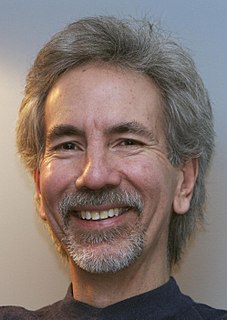A Quote by Daniel Levitin
Having learned something, we tend to cling to that belief, even in the face of overwhelming evidence to the contrary. New information comes in all time, and the thing we ought to be thinking about doing is changing our beliefs as that new information comes in.
Related Quotes
When examining evidence relevant to a given belief, people are inclined to see what they expect to see, and conclude what they expect to conclude. Information that is consistent with our pre-existing beliefs is often accepted at face value, whereas evidence that contradicts them is critically scrutinized and discounted. Our beliefs may thus be less responsive than they should to the implications of new information
Through the information the Pleiadians bring, we come into a new innate understanding of ourselves, and a new remembering. That really allows us to move forward on our path with that information. It's empowering. It puts things in perspective, back into place. It makes sense of everything that we are and what we're doing here, and what we have done and where we are going.
What should we think of someone who never admits error, never entertains doubt but adheres unflinchingly to the same ideas all his life, regardless of new evidence? Doubt and skepticism are signs of rationality. When we are too certain of our opinions, we run the risk of ignoring any evidence that conflicts with our views. It is doubt that shows we are still thinking, still willing to reexamine hardened beliefs when confronted with new facts and new evidence.

































